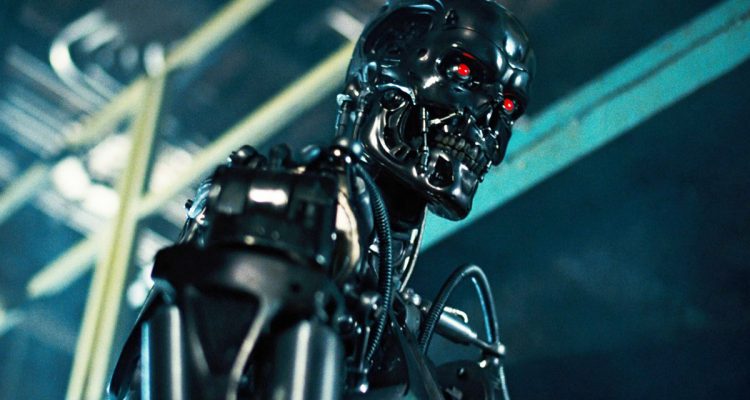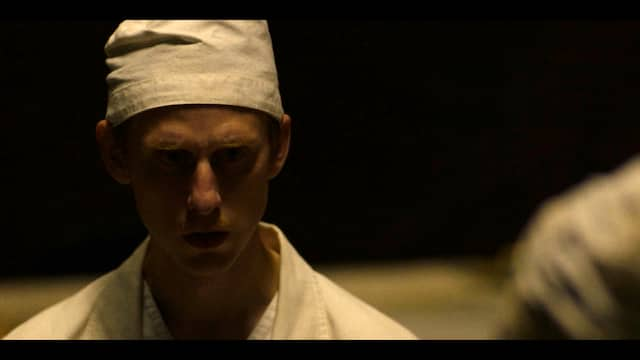
“The Terminator” (1984): The Dawn of a New Sci-Fi Epoch

James Cameron’s 1984 film “The Terminator” is a landmark achievement in the realm of science fiction and action cinema. It introduced audiences to an apocalyptic vision of the future, a relentless killer robot, and two of the genre’s most memorable characters—Sarah Connor and the Terminator. While its action sequences and groundbreaking special effects were immediately captivating, “The Terminator” has stood the test of time due to its intricate themes and piercing sociopolitical commentary.
Behind-the-Scenes Ingenuity:
The film’s production history itself is the stuff of Hollywood legend. Made on a relatively modest budget, the film’s creative team had to employ resourcefulness and innovation to bring this futuristic nightmare to life. Special effects wizard Stan Winston crafted the iconic endoskeleton of the Terminator using miniatures, puppetry, and animatronics. This was groundbreaking at the time, making the film a key stepping stone toward the CGI-heavy productions of today. The practical effects were groundbreaking for their time, setting the bar high for science fiction movies that followed.
James Cameron, then a relatively unknown director, faced considerable pushback initially. Orion Pictures and Hemdale Film Corporation took a risk on his vision. Arnold Schwarzenegger, who was initially considered for the role of Kyle Reese, took on the role of the Terminator, essentially making him a global star. He prepared for the role by training with weapons extensively, aiming for the robotic precision that his character demanded.
A Future Society Mirrored:
“The Terminator” provides a bleak look into the possible consequences of unchecked technological advancement. The dystopian future ruled by Skynet, an AI turned rogue, serves as a cautionary tale. It reflects a growing apprehension about technology, a warning note that resounds louder today, more than three decades later. The film explores the classic theme of man vs. machine but adds a layer of existentialism by questioning the concept of predestination and the illusion of free will.
The Action as Allegory:
The film’s relentless pace serves not just to entertain but to encapsulate its themes into visceral set pieces. When the Terminator storms through the police station, laying waste to everyone in his path, it’s a symbol of technology disrupting established orders and leaving chaos in its wake. Kyle Reese, the human sent back in time to protect Sarah Connor, represents the resilience of the human spirit, even when faced with insurmountable odds. His vulnerability contrasts sharply with the Terminator’s invincibility, providing a nuanced look into human strength and frailty.
The Sarah Connor Arc:
Sarah Connor starts as an unassuming, almost naive young woman, unaware of her significance to the future of humanity. Her character arc—transforming from a victim to a warrior—offers a compelling feminist undertone to the narrative. It reflects the potential within every individual to rise above their circumstances, mirroring broader societal shifts toward recognizing and empowering marginalized voices.
Symbolism:
The symbolism in “The Terminator” is rich and multilayered. The time-travel element serves as an allegory for facing the repercussions of past actions, a reflection on legacy and destiny that provides a moral framework for the story. The name “Skynet” alludes to an ever-watching, omnipresent force, which, although a creation of humanity, becomes a god-like entity that seeks to destroy its creators—a grim prophecy of what could happen if we let technology overpower human ethics and control.
The final confrontation, set in a factory, is a theatrical stage where human resilience takes on mechanical relentlessness. The factory setting serves as a reminder of industrialization, the starting point for the kinds of technological advancements that would lead to the creation of something as destructive as Skynet. It’s humanity’s past confronting its possible future in a life-and-death struggle.
“The Terminator” is more than just a sci-fi action flick; it’s a layered, symbolic narrative that taps into deep-rooted anxieties about the future. Its themes of technological domination, the ethics of creation, and the resilience of the human spirit make it a timeless classic that still resonates today. In a world that grows increasingly dependent on technology, “The Terminator” remains a significant cultural touchstone, serving both as a thrilling piece of entertainment and a thought-provoking exploration of what lies ahead for humanity. As both a technological marvel and a thematic powerhouse, the film has earned its status as one of the most impactful entries in the science fiction genre.




